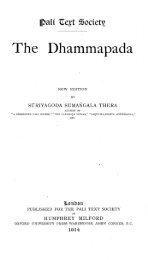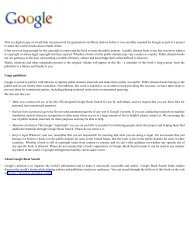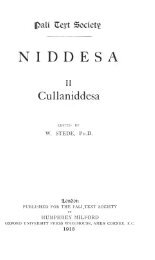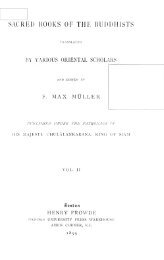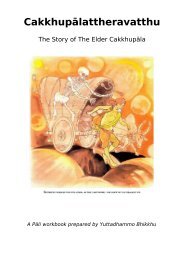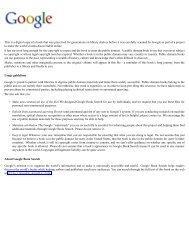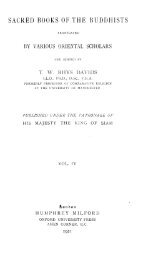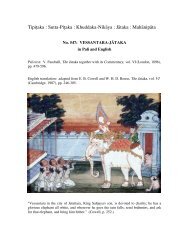Lessons In Practical Buddhism - Sirimangalo.Org
Lessons In Practical Buddhism - Sirimangalo.Org
Lessons In Practical Buddhism - Sirimangalo.Org
Create successful ePaper yourself
Turn your PDF publications into a flip-book with our unique Google optimized e-Paper software.
When we undertake the practice of meditation or even while<br />
living our daily lives, we will encounter difficulties and<br />
problems – situations that give rise to wanting and desire or<br />
aversions and dislikes, that give rise to conceit, attachment,<br />
delusion, jealousy, envy and so on. These situations allow us<br />
to see the nature of reality in terms of cause and effect, that<br />
if this arises, that will follow, and when this doesn’t arise – if<br />
one is able to give up the behaviour that is causing the<br />
problem – then the problem has no chance of arising. The<br />
teaching on dependent origination says that reality truly<br />
functions according to scientific laws both physically and<br />
mentally; that the problems of life do not arise by chance,<br />
magic, or supernatural means, but rather according to strict<br />
laws of cause and effect that can be used both to create and<br />
to remove suffering.<br />
The teaching on dependent origination is not, however, a<br />
fatalistic teaching. It doesn’t say that everything is strictly<br />
governed by a cause; in that sense, it is not making an<br />
ultimate claim about an impersonal universal framework<br />
outside of individual experience. It is simply stating the<br />
precise relationship between the intentions of an individual<br />
and their result for that individual. It says that we are in<br />
control of our own destiny to the extent of being able to<br />
choose our actions in this moment, but not so far as<br />
choosing what the outcome of those actions will be. It<br />
teaches that every type of mental intention has a<br />
corresponding impact on our lives, just as every physical<br />
action has a corresponding impact on the physical world.<br />
Once we understand the relationship between actions and<br />
their results – between suffering and unwholesome states<br />
and between happiness and wholesome states – our minds<br />
will naturally incline towards the development of those<br />
actions and mind states that lead to happiness, since we do<br />
not want to suffer. The problem is not that we want to hurt<br />
ourselves; intrinsically all beings are ever seeking for that<br />
which is pleasant, that which is peaceful, that which is a<br />
cause for happiness. The problem is that we don’t<br />
understand the nature of cause and effect. We perform<br />
certain acts and create certain mind states thinking that they<br />
will lead to our benefit, when in fact they are only for our<br />
detriment – a cause for more suffering.<br />
109



